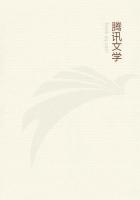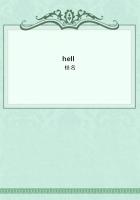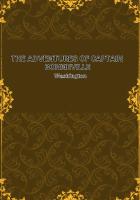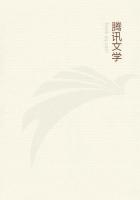On the formation, then, of propositions, the above remarks are enough. As regards the number of senses a term bears, we must not only treat of those terms which bear different senses, but we must also try to render their definitions; e.g. we must not merely say that justice and courage are called 'good' in one sense, and that what conduces to vigour and what conduces to health are called so in another, but also that the former are so called because of a certain intrinsic quality they themselves have, the latter because they are productive of a certain result and not because of any intrinsic quality in themselves. Similarly also in other cases.
Whether a term bears a number of specific meanings or one only, may be considered by the following means. First, look and see if its contrary bears a number of meanings, whether the discrepancy between them be one of kind or one of names. For in some cases a difference is at once displayed even in the names; e.g. the contrary of 'sharp' in the case of a note is 'flat', while in the case of a solid edge it is 'dull'. Clearly, then, the contrary of 'sharp' bears several meanings, and if so, also does 'sharp'; for corresponding to each of the former terms the meaning of its contrary will be different. For 'sharp' will not be the same when contrary to 'dull' and to 'flat', though 'sharp' is the contrary of each. Again Barhu ('flat', 'heavy') in the case of a note has 'sharp' as its contrary, but in the case of a solid mass 'light', so that Barhu is used with a number of meanings, inasmuch as its contrary also is so used. Likewise, also, 'fine' as applied to a picture has 'ugly' as its contrary, but, as applied to a house, 'ramshackle'; so that 'fine' is an ambiguous term.
In some cases there is no discrepancy of any sort in the names used, but a difference of kind between the meanings is at once obvious: e.g. in the case of 'clear' and 'obscure': for sound is called 'clear' and 'obscure', just as 'colour' is too. As regards the names, then, there is no discrepancy, but the difference in kind between the meanings is at once obvious: for colour is not called 'clear' in a like sense to sound. This is plain also through sensation: for of things that are the same in kind we have the same sensation, whereas we do not judge clearness by the same sensation in the case of sound and of colour, but in the latter case we judge by sight, in the former by hearing. Likewise also with 'sharp' and 'dull' in regard to flavours and solid edges: here in the latter case we judge by touch, but in the former by taste. For here again there is no discrepancy in the names used, in the case either of the original terms or of their contraries: for the contrary also of sharp in either sense is 'dull'.
Moreover, see if one sense of a term has a contrary, while another has absolutely none; e.g. the pleasure of drinking has a contrary in the pain of thirst, whereas the pleasure of seeing that the diagonal is incommensurate with the side has none, so that 'pleasure' is used in more than one sense. To 'love' also, used of the frame of mind, has to 'hate' as its contrary, while as used of the physical activity (kissing) it has none: clearly, therefore, to 'love' is an ambiguous term. Further, see in regard to their intermediates, if some meanings and their contraries have an intermediate, others have none, or if both have one but not the same one, e.g. 'clear' and 'obscure' in the case of colours have 'grey' as an intermediate, whereas in the case of sound they have none, or, if they have, it is 'harsh', as some people say that a harsh sound is intermediate.
'Clear', then, is an ambiguous term, and likewise also 'obscure'. See, moreover, if some of them have more than one intermediate, while others have but one, as is the case with 'clear' and 'obscure', for in the case of colours there are numbers of intermediates, whereas in regard to sound there is but one, viz. 'harsh'.
Again, in the case of the contradictory opposite, look and see if it bears more than one meaning. For if this bears more than one meaning, then the opposite of it also will be used in more than one meaning; e.g. 'to fail to see' a phrase with more than one meaning, viz. (1) to fail to possess the power of sight, (2) to fail to put that power to active use. But if this has more than one meaning, it follows necessarily that 'to see' also has more than one meaning: for there will be an opposite to each sense of 'to fail to see'; e.g. the opposite of 'not to possess the power of sight' is to possess it, while of 'not to put the power of sight to active use', the opposite is to put it to active use.
Moreover, examine the case of terms that denote the privation or presence of a certain state: for if the one term bears more than one meaning, then so will the remaining term: e.g. if 'to have sense' be used with more than one meaning, as applied to the soul and to the body, then 'to be wanting in sense' too will be used with more than one meaning, as applied to the soul and to the body. That the opposition between the terms now in question depends upon the privation or presence of a certain state is clear, since animals naturally possess each kind of 'sense', both as applied to the soul and as applied to the body.

